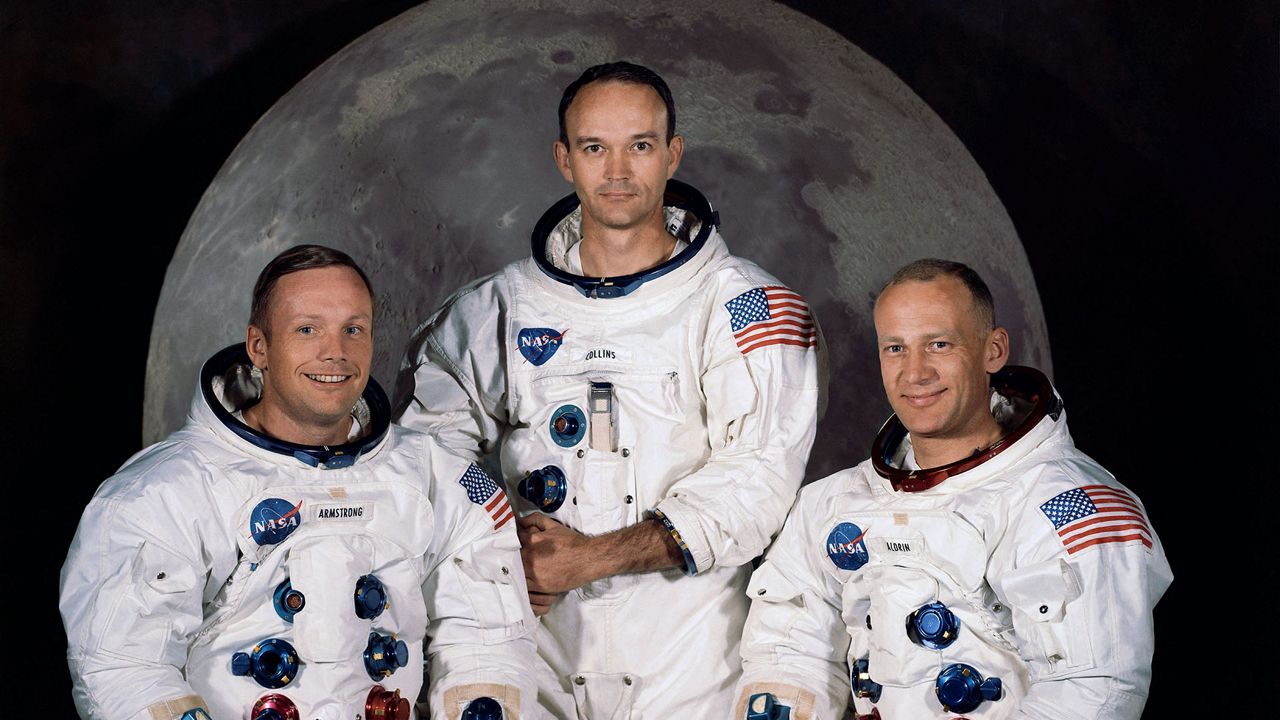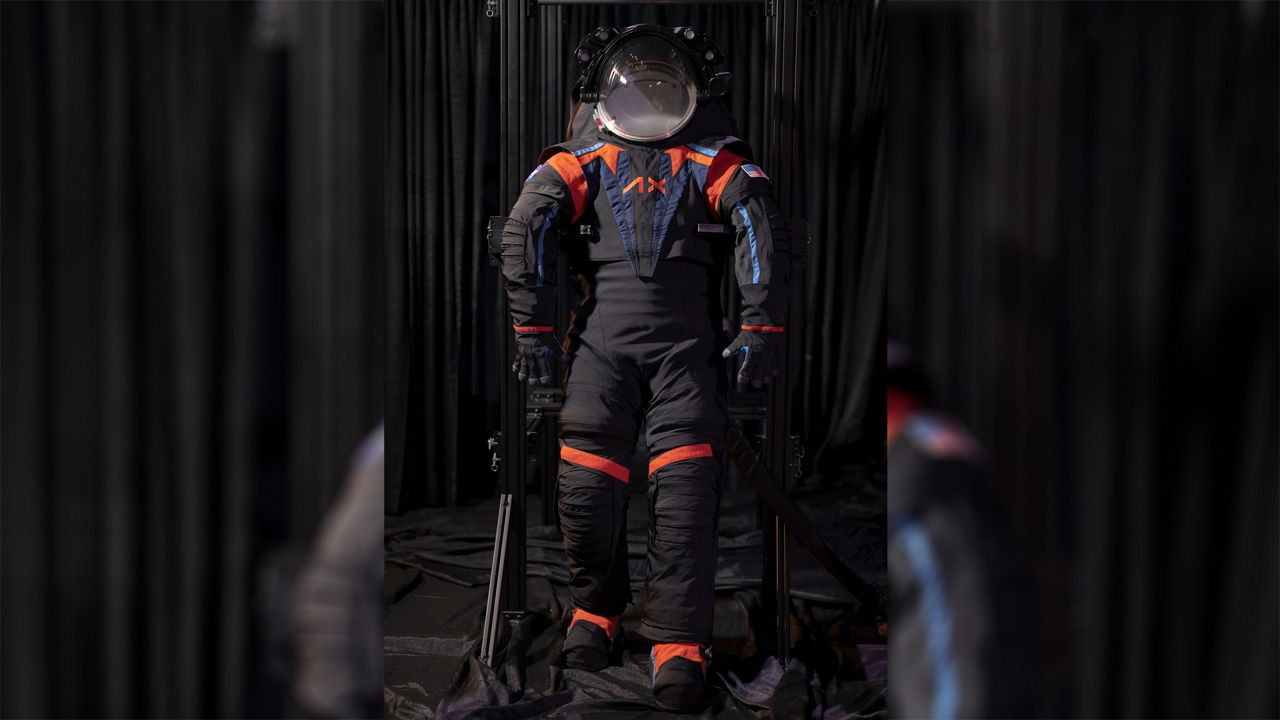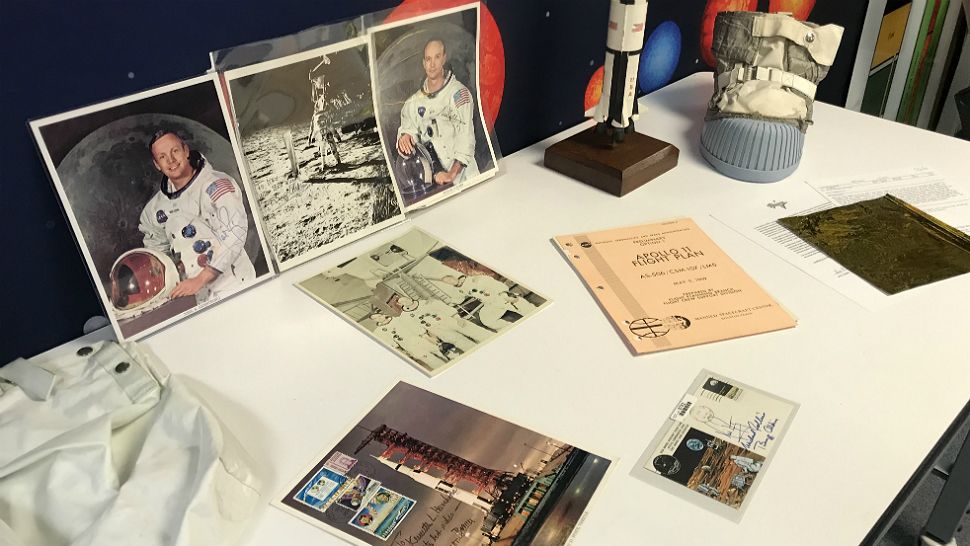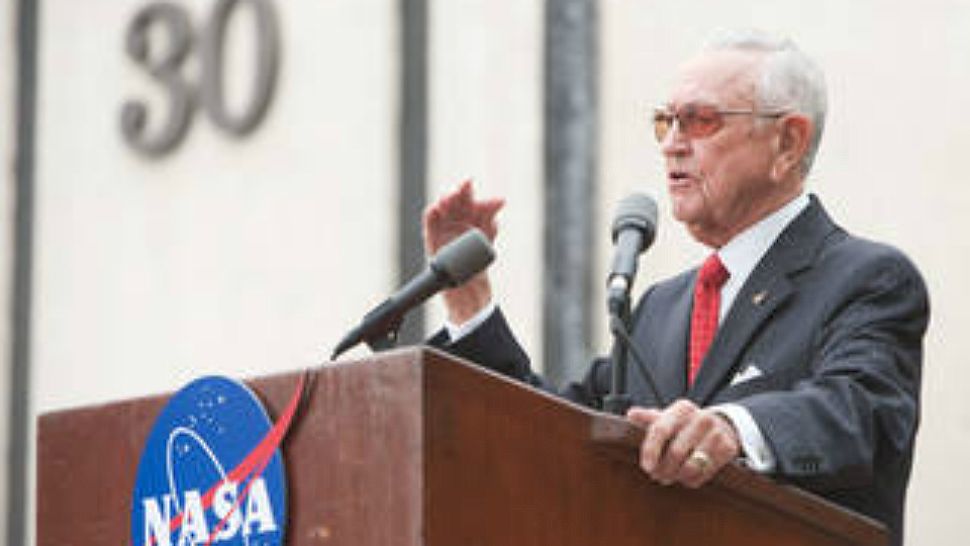KENNEDY SPACE CENTER, Fla. — Tuesday marks 50 years since the launch that took the Apollo 11 crew to the moon. It was a launch that changed history, allowing man to first set foot on the lunar surface.
- John Tribe was a propulsion manager during Apollo 11 project
- Today he will be with Buzz Aldrin, Michael Collins for NASA tour
- Follow our Apollo 11 coverage
- Get more space coverage
- RELATED stories:
- SEE BELOW: Michael Collins Shares Moon Landing Experience ▼
The two surviving astronauts from Apollo 11, Buzz Aldrin and Michael Collins, are took a tour of the launch pad and firing room where their historic mission began 50 years ago.
That launch was a great accomplishment for them, but also for the thousands behind the scenes who made mankind's giant leap possible.
Neil Armstrong, Aldrin, and Collins became household names after their historical moon landing.
However, if it were not for people like John Tribe, Apollo 11 would have never gotten off the ground.
"I worked up here. I was always at the top of the rocket," the Apollo 11 propulsion manager said as he pointed to the top of the rocket. "I was up before dark, crept out of the house before anybody was up. Get to work by 6:30. I'd be lucky to get home by 7 or 8 most days. By the time I got home, the kids were in bed, or close to getting to bed."
It was a huge sacrifice for Tribe, who moved from England in 1961 to be a part of America's space program.
However, Tribe was not alone as 400,000 workers made the first moon landing possible.
Yet the project still made an impression on him. Tribe was stuck in a room without windows when the mighty Saturn V took off.
"We watch it on a little black and white TV. You could hear it, feel it in the building. You know you're only about 7 miles away, so you could certainly feel it's going," he recalled.
He may not have gotten to watch it in person, or even receive the recognition he deserved, but he felt a newfound pride in his new home country.
"I think by this time, I was an American," he said.
After working in propulsion during Apollo, Tribe worked as a chief engineer during the shuttle program.
On Tuesday, Tribe will be at the space center to escort Collins around during his tour.
Michael Collins Shares Moon Landing Experience
During a Facebook Live, Michael Collins recalled what it was like to prepare for the historical moon landing and what it was like to be in the Apollo 11.
At 9:32 a.m. Tuesday, Collins sat at Pad 39A. Fifty years before, he, Neil Armstrong and Buzz Aldrin blasted off into history at this very spot.
For Collins, the moment is still etched in his mind as their journey to the moon was underway. He served as the Lunar Command Module Pilot, orbiting above as Armstrong and Aldrin took the first steps on the chalky surface.
"It's funny, when you talk to him, you think that was the loneliest guy in the universe," said Chris Swanson, a NASA-TV multimedia specialist, tasked with documenting Collins visit to the launch pad a half century later.
It's part of the job, but he found himself immersed in Collins' recollection of the moments surrounding the mission.
"But he doesn't look at it that way," Swanson said. "He says he had a checklist, he still had the next thing to do. He had to be where he needed to be so that Buzz Aldrin and Neil Armstrong could get back to him when they were done with their mission on the moon."
The mission brought the Apollo 11 crew safely back home, into space lore, and helped unify humanity in a very turbulent time on Earth.
"Whether we can recreate that unification, that sense of awe, that sense of joining in and being happy about something, I hope we can," Collins said.
Collins says he's impressed with NASA's new mission to head back to the moon with the Artemis Program, and then eventually.









